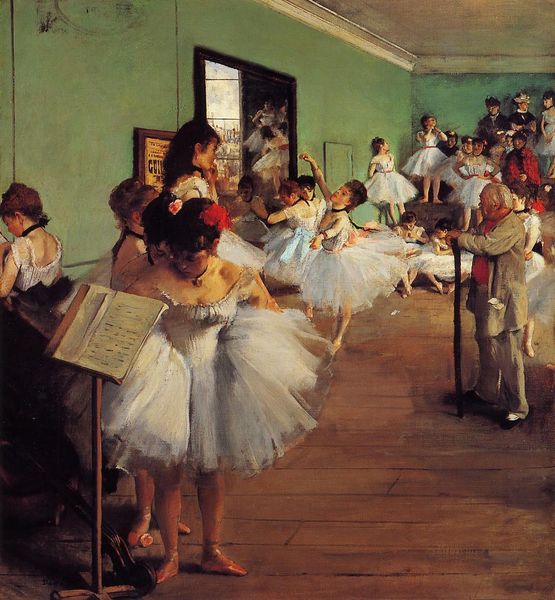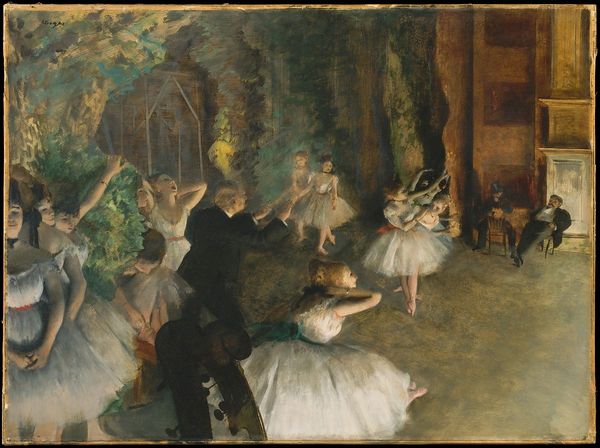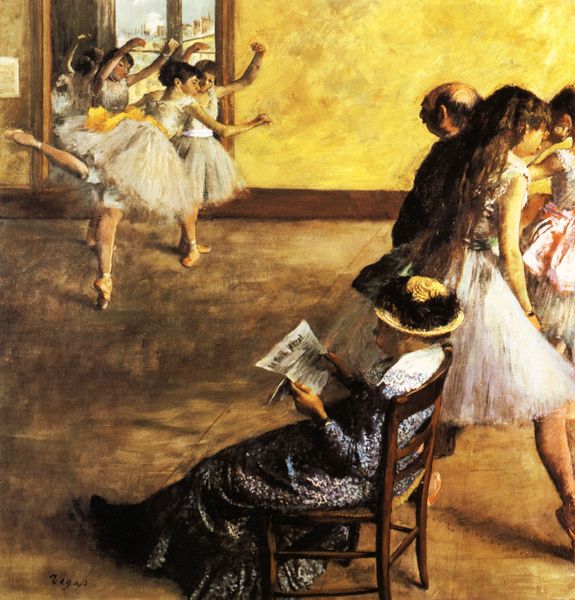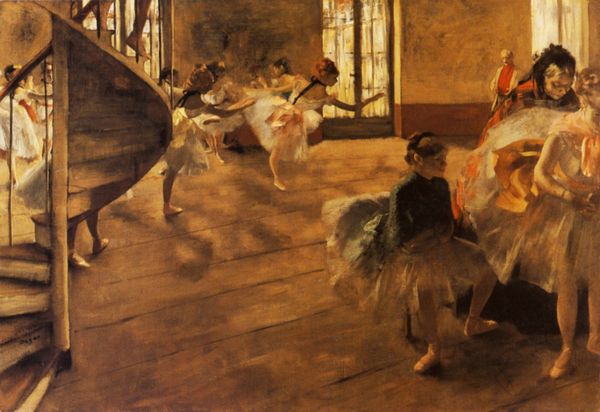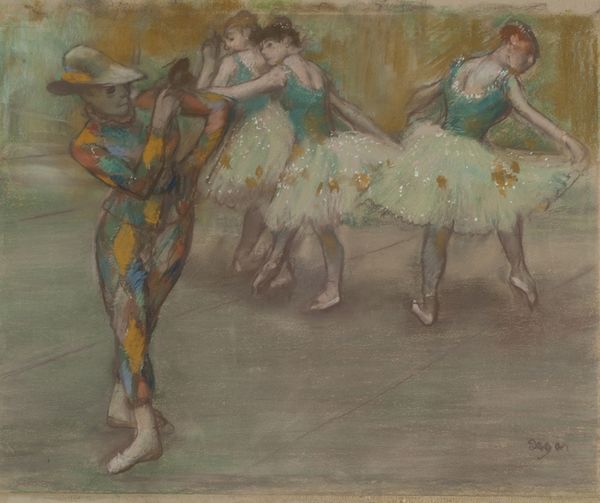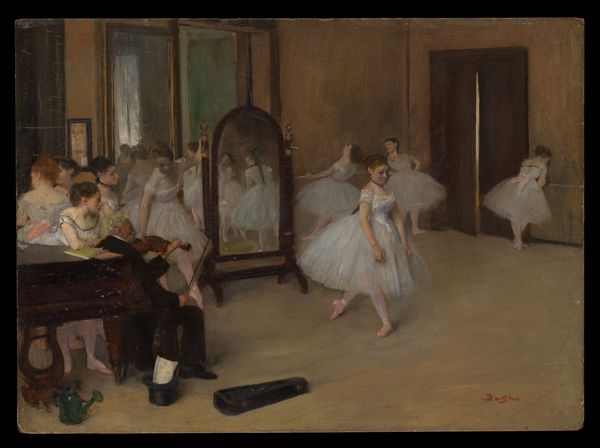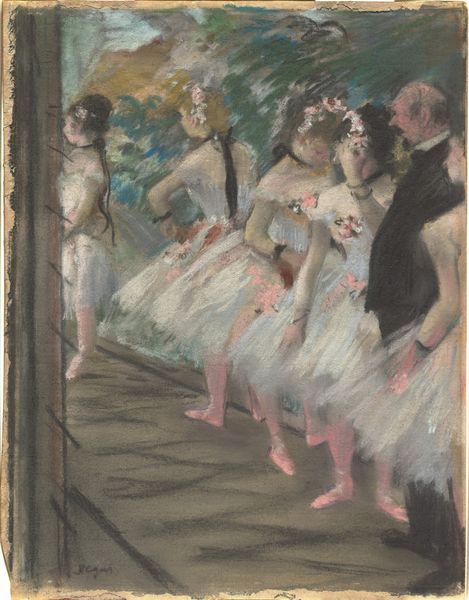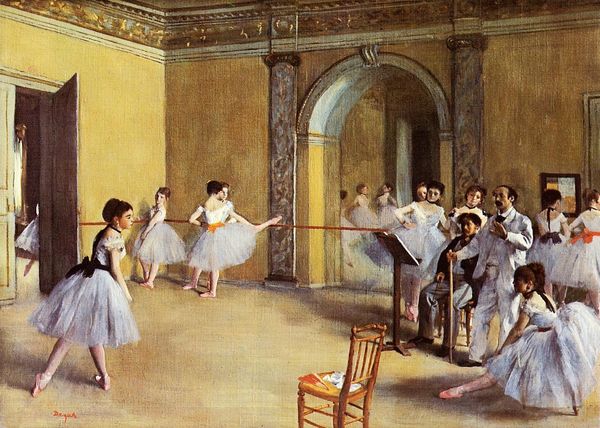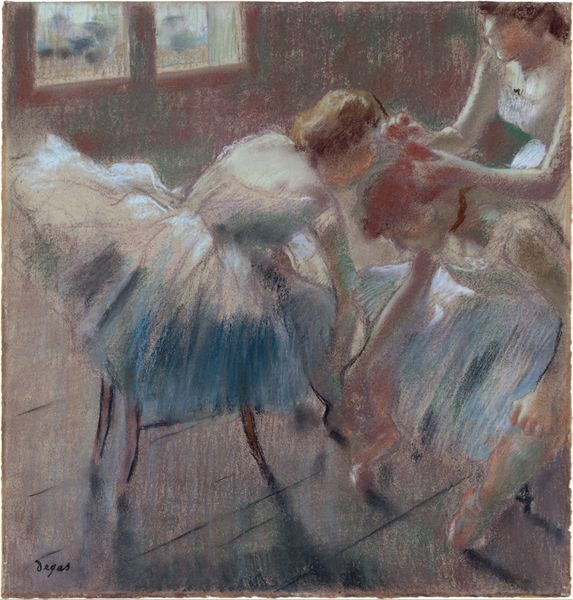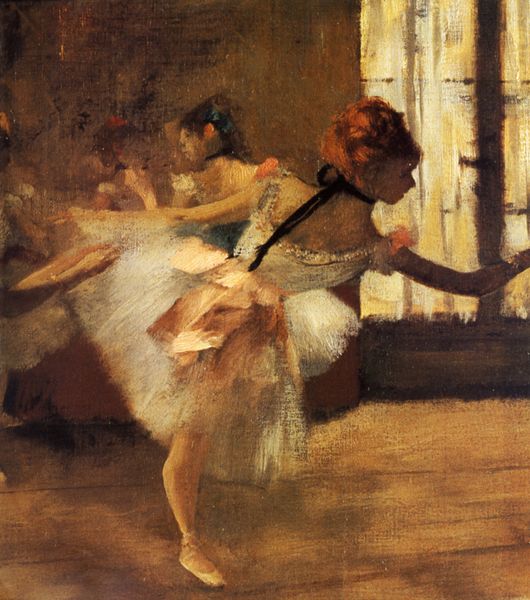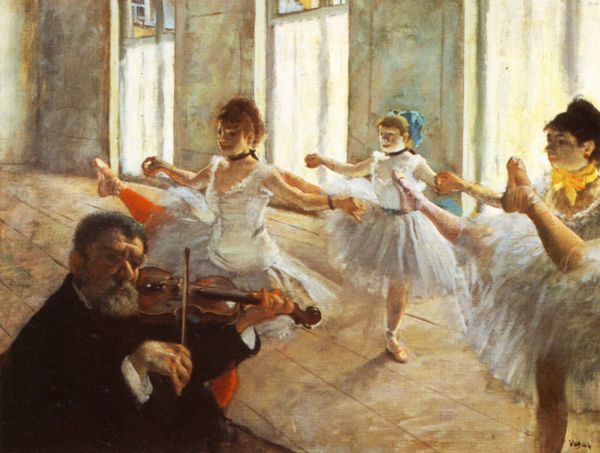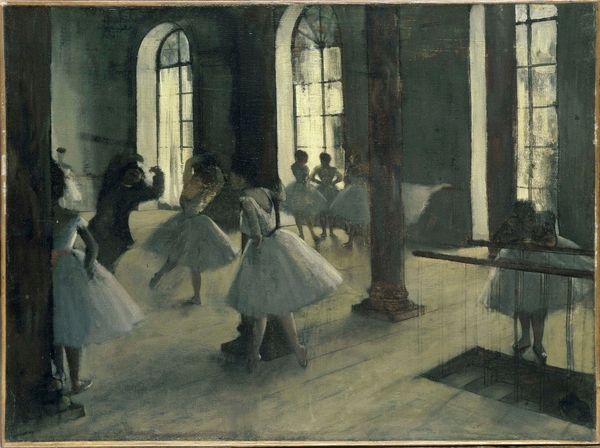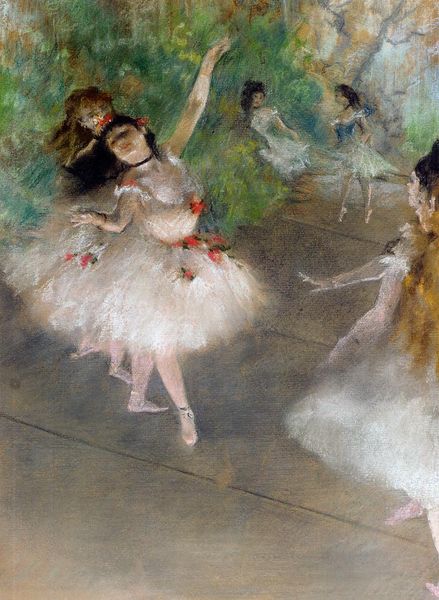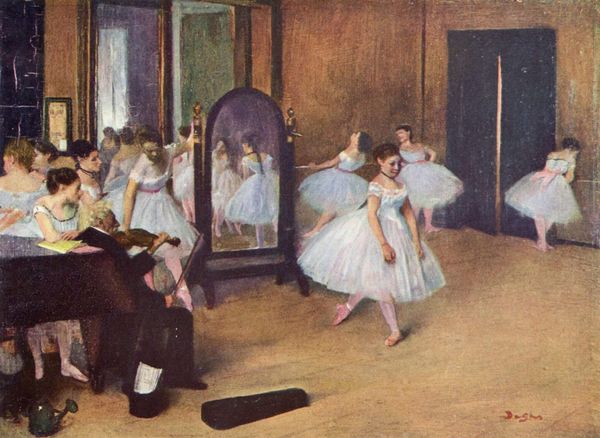
painting, oil-paint, pastel
#
portrait
#
gouache
#
painting
#
impressionism
#
oil-paint
#
charcoal drawing
#
figuration
#
oil painting
#
group-portraits
#
pastel chalk drawing
#
painting painterly
#
genre-painting
#
pastel
Dimensions: 85 x 75 cm
Copyright: Public domain
Editor: Here we have Degas' "The Ballet Class," painted around 1874, primarily using oil paint and pastel. The overall impression is almost like a captured moment, an intimate glimpse behind the scenes. How would you interpret the composition of this piece? Curator: The compositional structure reveals a sophisticated approach. Degas disrupts traditional notions of a balanced scene. Note the cropping, the figures clustered asymmetrically. It evokes a sense of fleeting observation, as though we are peering into a private world rather than witnessing a staged performance. The orthogonal lines of the floor create a receding perspective, pulling us into the space. Editor: So, the unbalanced composition is intentional? Curator: Precisely. Consider also the tonal values and how they operate formally within the painting. Notice the contrast between the shadowed foreground and the brighter, illuminated space where many of the dancers are situated. Degas masterfully uses this contrast to create depth and highlight the relationship between foreground and background elements, doesn’t he? Editor: Yes, I see that now. And the use of pastel seems to add a soft, almost dreamlike quality to the light. What is your take on the relationship between colour, light and tone here? Curator: Indeed. The pastel allows Degas to build up layers of color, creating subtle gradations and nuanced effects. These colors might point the observer to the more philosophical readings within. Note how the colour tonalities change throughout to create contrast between subjects of significance, adding multiple elements which enhance the viewing of subjects and their placement within the painting. Editor: It's interesting how focusing on just the formal elements can reveal so much. I thought it was just a snapshot, but it's so much more considered. Curator: Precisely. By observing how structure, light, tone and layering impact the painting itself, a variety of perspectives become clear for consideration.
Comments
No comments
Be the first to comment and join the conversation on the ultimate creative platform.
